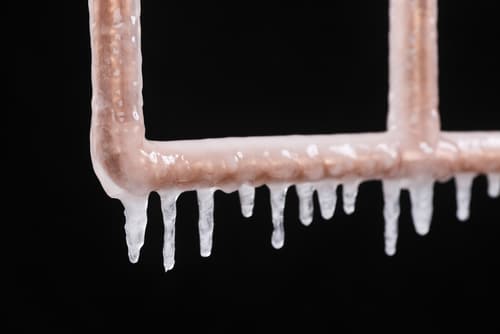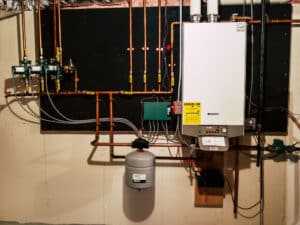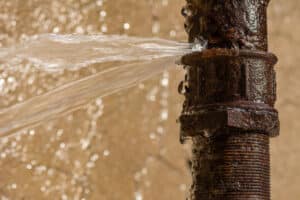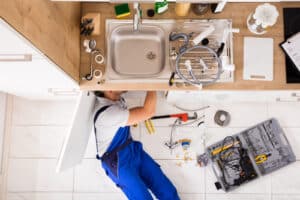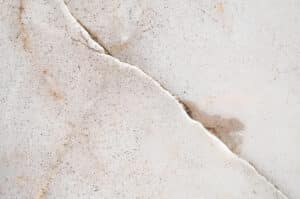Winter in Sherman Oaks can bring unexpected plumbing challenges to your home. As temperatures drop, the risk of issues like frozen pipes or malfunctioning water heaters increases. These problems can disrupt your daily life and lead to costly repairs if not addressed promptly.
Preventing Frozen Pipes
Frozen pipes are a common winter issue that many homeowners in Sherman Oaks face. Pipes freeze when the temperature drops and the water inside them turns to ice. This can lead to blockages and even bursts, causing significant damage. Pipes located in unheated areas like basements, attics, or exterior walls are most at risk.
To prevent your pipes from freezing, start by insulating them. Use foam pipe insulation sleeves or heat tape, especially on pipes in vulnerable spots. During extremely cold nights, it’s helpful to keep cabinet doors under sinks open to allow warm air to circulate around the pipes. You can also let faucets drip slightly; moving water is less likely to freeze.
If a pipe starts to freeze, act fast. Turn on the faucet to relieve pressure and use a hairdryer to warm the affected area, starting from the faucet side and working your way down. Never use open flames to thaw pipes, as this is dangerous. If the problem persists or you’re unsure, it’s best to contact a professional for help to avoid further issues.
Addressing Water Heater Issues in Winter
Winter months can be tough on water heaters, which need to work harder to supply hot water. Common issues include longer wait times for hot water or fluctuating temperatures. Mineral buildup and increased demand can lead to these problems and reduce the efficiency of your heater.
To maintain your water heater, start by regularly flushing the tank to remove sediment. This buildup can reduce efficiency and shorten the unit’s lifespan. Checking and insulating pipes connected to the heater also helps maintain consistent temperatures. Another tip is to adjust the thermostat to about 120 degrees Fahrenheit to ensure a steady supply without wasting energy.
Sometimes, despite your efforts, water heater problems persist. If you notice unusual noises, leaks, or lack of hot water, it might be time to consider professional assistance. A plumber can diagnose underlying issues and recommend repairs or replacements as needed, ensuring your home stays comfortable during the colder months. Remember, tackling minor problems early can prevent major inconveniences and keep energy costs in check.
Dealing with Clogged Drains
Winter months can pose unique challenges for drains due to heavier usage and sticky residues. Cold weather often solidifies fats, oils, and grease, which are common culprits for clogs. Seasonal foods, such as holiday cooking, can contribute to buildup in kitchen drains. Bathroom drains can also see more hair shedding in colder months, adding to blockages.
To handle clogs effectively, start with simple methods. A plunger is great for clearing minor clogs in sinks or toilets. For stubborn blockages, a mixture of baking soda and vinegar can work wonders as a natural drain cleaner. Just pour the baking soda down the drain, followed by vinegar, and wait for the fizz to settle before rinsing with hot water.
Preventing future clogs is key to smoother plumbing flow. Be aware of what goes down the drain, avoiding grease, large food particles, and non-biodegradable materials. Installing strainers over drains can catch hair and other debris. Regularly flushing your drains with hot water also helps keep them clear.
Managing Outdoor Plumbing Concerns
Outdoor plumbing often faces the brunt of winter weather, making it crucial to protect these areas. Faucets and hoses are particularly vulnerable to freezing temperatures, which can cause them to crack. Disconnect garden hoses and store them indoors. Use insulating covers on outdoor faucets to shield them from the cold.
Irrigation systems that aren’t winter-ready can suffer damage. Ensure that all sprinkler lines are drained to prevent freezing. Draining involves shutting off the water supply and using air pressure to blow out the pipes. This simple step can save you from costly repairs come spring.
Other outdoor plumbing elements like pool and garden pipes need attention too. Cover your pool with a sturdy cover to prevent debris from entering. Garden plumbing should be insulated or drained if not in use during winter. Checking these systems regularly ensures that unexpected issues don’t arise when temperatures drop.
Conclusion
Preparing your Sherman Oaks home for winter plumbing challenges keeps your systems in top shape and your stress levels low. By identifying potential problems early and following these straightforward solutions, you can prevent the season’s common plumbing frustrations. Educating yourself and taking preventative measures leads to a worry-free winter with reliable plumbing throughout your home.
Winter plumbing issues can be a hassle, but they don’t have to be when you have a trusted partner on your side. Contact Coast to Coast Plumbing and Rooter for expert plumbing services in Sherman Oaks to keep your plumbing running smoothly all winter long. Our experienced team is ready to help protect your home from the chilly challenges Sherman Oaks can bring.





